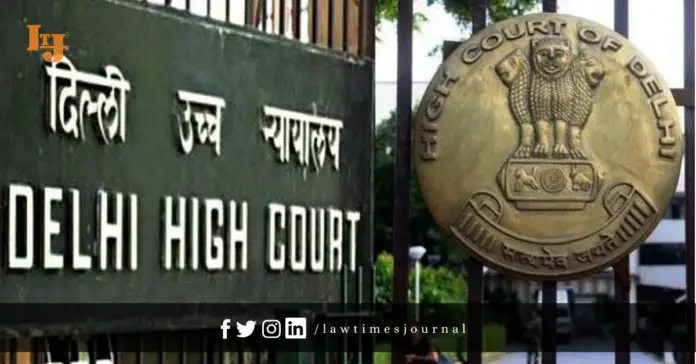
The Delhi High Court has held that there is no complete embargo, under the Transplantation of Human Organs & Tissues Act, 1994, on minors from donating organs. The Single Bench of Justice Sanjeev Sachdeva held that the minors can only be allowed to donate organs in exceptional medical circumstances, by rules and when there’s no potential risk to the said minor.
Prior Facts:
The present petition was moved seeking court’s directions to the Appropriate Authority appointed under Section 13(1) of Transplantation of Human Organs & Tissues Act, 1994 for allowing liver transplantation and permitting the Petitioner to donate part of her liver to her father. Petitioner’s father is undergoing treatment for acute liver failure, and the medical certificate issued by the hospital suggests that he requires an immediate liver transplant, which should be carried out as soon as possible.
Key Features:
- The Petitioner submitted that no permission is necessary under the Transplantation of Human Organs & Tissues Act, 1994 in case of any near relative if the donor is not a minor.
- It was further argued that after the 2011 amendment to the said Act, complete prohibition for a minor to donate a human organ or tissue before death has been done away with and a minor is permitted to donate organ and tissue in a manner as may be prescribed by the government.
- The petition stated that “‘In terms of Rule 5(3) (g) of the Transplantation of Human Organs & Tissues Rules, 2014, living organs or tissues, donation by minor is not permitted except under exceptional medical grounds to be recorded in details with full justification and with prior approval of the competent authority”.
- The Petitioner informed the court that her date of birth is 22.05.2002 and on 22.05.2020 she would turn a major, presently she is aged 17 years 10 months and is studying in Class-XII, and she is mentally capable and has matured understanding. Therefore, she had agreed to donate her liver voluntarily, and without any force or coercion.
- It was further argued that because of the present prevailing situation by complete lockdown in the country on account of pandemic COVID-19 there is also no possibility of finding a donor shortly and the father of the petitioner requires immediate surgery.
- The counsel appearing for the government, on the other hand, informed the court that the Ministry of Health and Family Welfare had rejected the representation made by the Petitioner’s mother seeking the same relief by relying upon the judgment of the Delhi High Court in the case of Mohd Suhail Mia v. Union of India.
Judgement:
- The Court held that “there is no complete prohibition in a minor donating an organ or tissue before attaining majority. Donation is permissible but in exceptional circumstances and accordance with the rules”.
- The court, however, disagreed with the decision taken by the Ministry by observing that in the aforesaid case, the court had held that a minor can donate an organ in exceptional medical circumstances. However, as per the facts of that case, the minor was denying such organ donation as an expert medical body had suggested that doing so would put that particular minor’s health at risk.
- Differentiating the facts of Mohd Suhail Mia from the present case, the court observed that: ‘There is no medical opinion in the present case to suggest that there is a potential risk to the petitioner. The minor is aged over 17 years and 10 months.’
- The court further noted that there is no complete prohibition in a minor donating an organ or tissue before attaining majority. Donation is permissible but in exceptional circumstances and accordance with the rules.
- In light of the same, the court held that the decision of the committee of rejecting the representation of the petitioner solely on the ground that the petitioner is a minor is not sustainable.
- Therefore, the court has directed Director of Max Super Speciality Hospital, Saket to immediately constitute a committee of two senior doctors preferably; one who is an expert in Liver Transplant and Biliary Sciences to consider the case of the Petitioner and to ascertain if there could be any potential risk to the Petitioner in donating part of her liver to her father.
- The Court directed that ‘Petitioner would be at liberty to present her case before the said committee and the committee and shall render its advice latest by tomorrow evening to the concerned Ministry who shall consider the report immediately thereafter and take a decision forthwith’.
Reference:
- Case of Anshita Bansal vs. Secretary Ministry of Health And Family Welfare & Ors, W.P. (C) URGENT 6/2020 (to be numbered subsequently), In the High Court of Delhi at New Delhi, dated April 01, 2020.
Edited by J. Madonna Jephi
Approved & Published – Sakshi Raje








